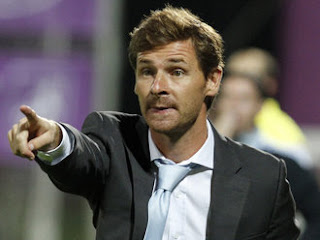Un Misérable starring Arsène Wenger
It’s a well known fact that Arsenal haven’t won anything for far too long (by their own high standards of course). It has finally reached the point where some Arsenal fans are thinking the unthinkable; is it time for Wenger to move on to pastures new?
 |
| I'll get my coat |
There are a lot of questions that have been asked of Wenger’s approach to the management of the team over the last few years. Why do the players seem to insist on walking the ball into the goal? Is there too much focus on developing young talent? The latter was even asked by Cesc Fabregas himself last week, although it seems likely that his words were twisted. Now it seems they have ruined their chances of winning the league thanks to far too many draws recently. So, if it is down to Monsieur Wenger, where did he go wrong?
It goes without saying that Wenger has done brilliant things at Arsenal since arriving there in 1996 and he is currently the second longest serving manager in the league (if you don’t know who is first then you must have stopped watching football in 1986....). Wenger is credited with bringing “liquid football” to the UK
Could Arsenal’s barren run of six years without a trophy be down to focussing on developing the young players? The Arsenal team that lost at Bolton last week had an average age of 24. If you compare this to the average age of Arsenal’s ‘Invincibles’ which was 28 there is a clear difference. However, there is no way of proving that a younger squad would have less chance of winning trophies; I’m sure Alan Hansen would be the first person to agree with that statement. Perhaps what Arsenal are missing is a few veterans in the side to lead by example and ‘guide’ the younger players through the season and onto glory.
Having a glance through the current Arsenal squad it is difficult to find an experienced “leader”. The best candidates are Emmanuel Eboue or Tomas Rosicky but neither of them have actually won anything with Arsenal since being there so they don’t really qualify for the role. Now we come to Jens Lehmann who has made a return to the Emirates relatively recently in yet another questionable Wenger decision. Lehmann fits the bill of a (very) experienced leader but only time will tell if he can help the team win trophies next season. That is if he is even still there next season. Although even if he is but doesn’t play very often he could have an important influence in training and in the dressing room.
 |
| Wenger's war on water |
On a quick side note, Arsène Wenger often conveys his annoyance at the performance of officials and his team not collecting all 3 points by abusing water bottles in his technical area. Have a look at Ian Rands’ blog “A United View” for a nice graphic illustrating Wenger’s water bottle abuse since 2003/4. Ironically, Arsenal’s “liquid football” dried up around the same time Arsène began assaulting innocent bottles of Evian. If he continues constantly blaming match officials for dropped points then he should read the Evian label backwards and think again.
I hate to keep referring back to the “Invincibles” but I’m going to keep doing it because it makes sense! Anyway, the “Invincibles” were known for their free flowing attacking football and if truth be told Arsenal still play like that today. Admittedly the current squad don’t pull it off quite so well but when Walcott et al bring their A-game they look very similar to the last team that delivered trophies to Highbury/Emirates. I’m really saying that the current Arsenal crop don’t play to their full ability often enough and with them being such a young team it could be put down to a lack of experience and footballing maturity.
One big problem that Arsenal have is that they have managed to earn themselves the label of “bottlers”. This year’s League Cup Final is a perfect example of how they have managed to be tagged as having no nerve; on paper they should have won easily but the expectation was too much and Birmingham took full advantage. In the 2006 Champions League Final and again in the 2007 League Cup Final, Arsenal let a one goal lead slip and in doing so; had to go home with runners-up medals. Those last two examples were against much stiffer opposition than Birmingham (no offence meant to Birmingham Newcastle
There are a lot of things that point towards Arsenal needing their very own Ryan Giggs or Jamie Carragher; a player who essentially is the club. The problem that Arsenal face in their quest for a Giggs/Carragher type player is that no-one has been at the club long enough to command such a huge amount of respect and admiration from their teammates. It is possible that Wenger saw the return of Lehmann as a way of addressing this issue but as he has played for other clubs since his departure from Arsenal and as his (re) arrival has already been questioned there is surely no way he could give the team the confidence in themselves that is so desperately needed.
It shouldn’t be necessary to have to change manager. If Wenger does leave then the Arsenal board would have a very difficult task in finding a replacement. It is unlikely that Wenger would walk out in the summer but if he is shown the door by the powers that be then expect a lot of the management rumours to centre around this guy….
 |
| André Villas Boas |






